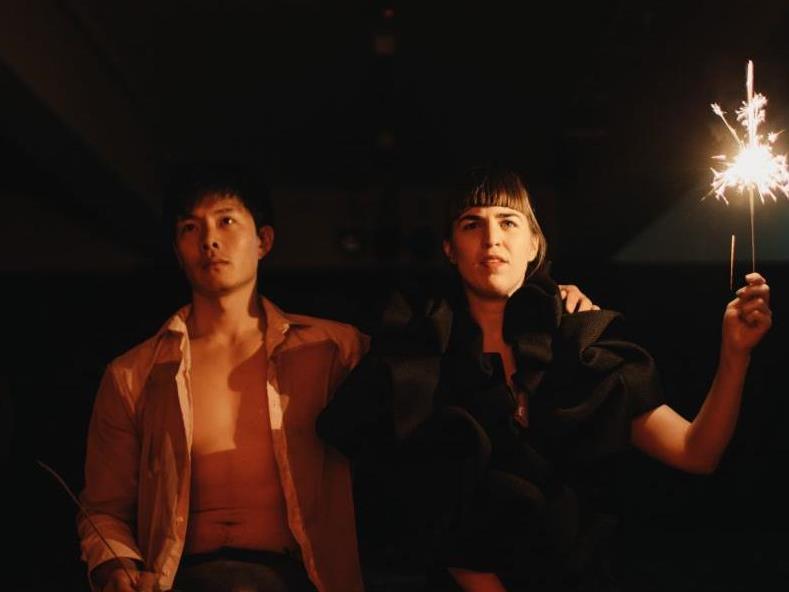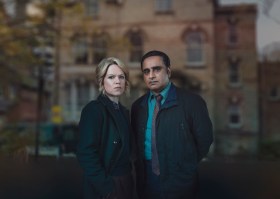The Dead Twin, Written by Chi Vu and directed by Deborah Leiser-Moore. Photo by Jave Lee.
Mentoring is valuable in any career but perhaps essential in the arts where career paths are fluid and networking essential. But it’s not enough just to hook up with someone who has made it and expect their career success to trickle down. Like any relationship, a good mentoring match takes work.
Don’t get in too early
Even before thinking of a mentorship, it’s essential to know the right time to apply for one. Aoife Clifford, who won a 25-hour Emerging Writers’ and Illustrators’ Mentorship by the Australian Society of Authors (ASA) for 2013-14 said it is necessary to have a very clear image of your own project before deciding to go for a mentorship, which is a process that is going to be critical at times.
‘I have seen projects that I thought were worthwhile wither and die because the criticism came a bit too early and the person wasn’t quite ready for it.’
Clifford who succeeded in her second attempt for the mentorship felt the ASA were right to turn her down initially.
‘I wasn’t at that place where I had a strong enough vision of my project and that probably came across in my first application. The next time around, I was much clearer about my project and also what I needed from the mentorship.
Find the right mentor
Begin with research but decide based on gut feeling, advises writer, director and performer Chi Vu, who is a mentor for Emerging Cultural Leaders (ECL), a five-month skills development and mentoring program at the Footscray Community Arts Centre (FCAC). In 2014, the mentorship was supported by Arts Victoria and the University of Melbourne’s Faculty of VCA Graduate Mentorship scholarship.
Vu advises mentorees to be proactive in considering what they want from the mentorship and the skills a prospective mentor could offer.
‘It’s a good thing to ask around to see what a prospective mentor has done previously, getting a bit of an understanding of their work, why they make work and their reputation in terms of working with mentorees.’
Vu mentored Rani Pramesti, a Chinese-Indonesian performance artist under the ECL program in 2013 and Pramesti said the success of the relationship was the result of a good fit.
‘Chi and I worked very well, because I think it comes down to the pairing, in terms of personality, what you’re interests are etc.
‘It matters that you can communicate well with each other, because if the basic stuff doesn’t align, then no matter what effort you put in as a mentoree, it will be challenging to make the most of the mentorship,’ said Pramesti.
Open up communication channels
Having chosen a mentor, Vu said a mentorees should come with an open mind about how the mentoring relationship will go and be prepared for open and wide-ranging conversations.
‘If you think that, “Oh, I just need to know how to edit my script,” and you don’t contact the mentor for ages, that could be a missed opportunity.’
Interdisciplinary artist Jodee Mundy, who received a mentorship and $30,000 through the Community Partnerships’ 2013 Career Pathways under the Community Arts and Cultural Development (CACD) program of the Australia Council, used social networking to communicate with the four mentors during her year-long program.
‘Apart from the monthly meetings, I created a Google group, so we could communicate as a group and I uploaded things like a diary, so they could read what I was going through.’
She said keeping her channels of communication open with her mentors helped her greatly to be able to deliver on her mentorship goals.
Clifford ‘s writing mentor, crime writer Garry Disher, provided written reports which she found tremendously valuable.
‘When you are in the process of listening to someone about your work, specially the first time through, sometime all you hear is the criticism and that can throw you, but when it’s written you still read the criticism, but it allows you to go back and see your strengths. It’s a record of what was actually said as opposed to what you remember being said.’
Set goals and structure
An Australia Council resource Making Your Mentorship Work is a valuable document for both parties to read before starting the mentorship.
‘What’s really important is to have a talk about what you expect from each other, set some ground rules, talk about preferences for communication, and articulate what the mentoree would like to be able to do by the end of the relationship, which they feel they can’t do at the start,’ said Vu.
Mundy feels it’s good to clear a space for the mentorship, to be able to manage it like a program with a proper structure.
‘I had my own little room that I just put there for the mentorship; it was separate to my studio – I made the mentorship program separate to my art space.
‘I think at the beginning you also have to say where you want to arrive; you’re being mentored because you need something and you can’t move forward unless you have that.’
Be professional
Pramesti who was working on her project Chinese Whispers always prepared in advance for every meeting she had with her mentor.
‘Normally Chi and I would meet monthly, and I always tried to come to the table with some new development – either it was a question or something I didn’t feel sure about.’
The ASA mentorship allocates only 25 hours of a mentor’s time over 12-18 months, so time was a precious commodity for Clifford.
‘They are busy people with their own lives to lead, so it’s important to treat it professionally.
‘In my application I remember I wrote that I wanted someone to be a sounding board, like a warning bell and then also a beacon of hope, to say that one day this will be done and I can say it’s finished.
‘And it’s a combination of those things, but the mentor is not going to do it for you, you are still going to do it yourself,’ she added.





